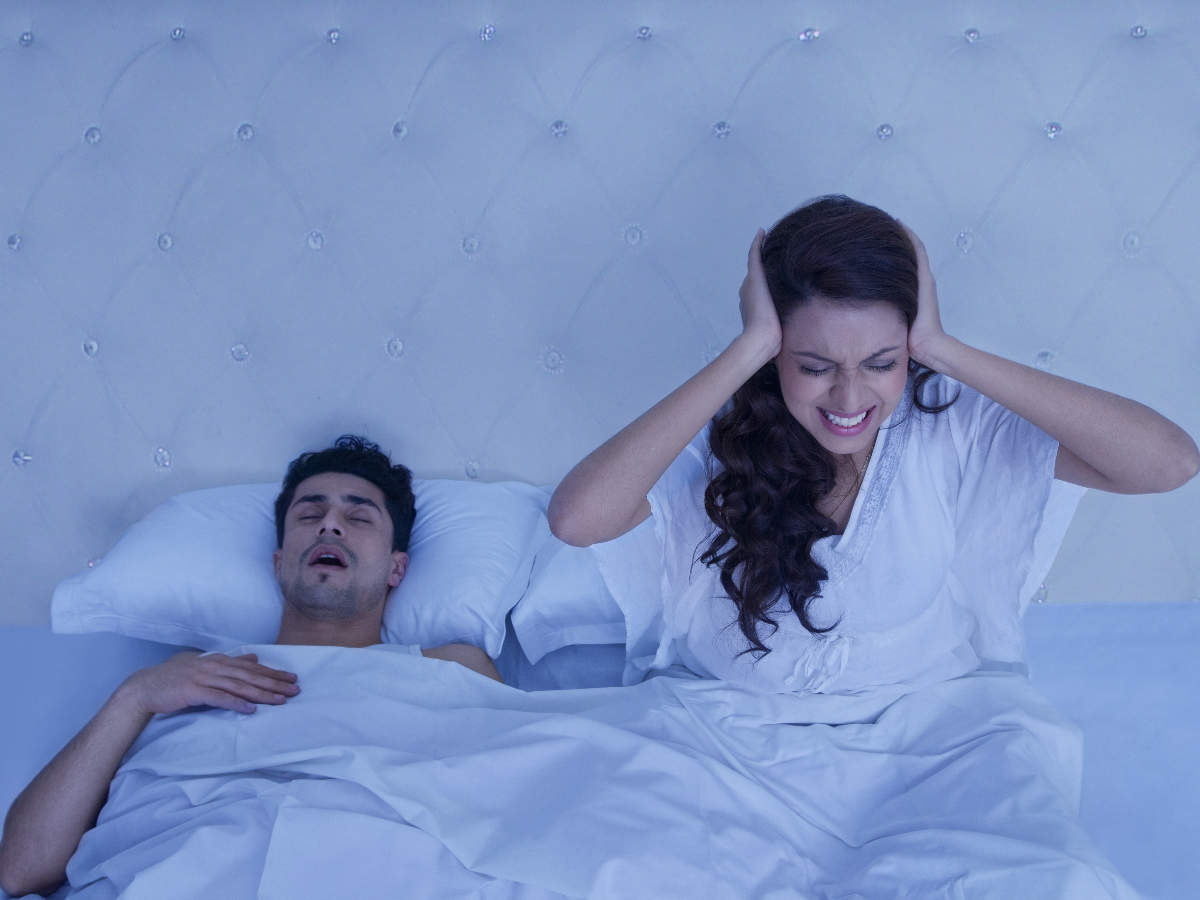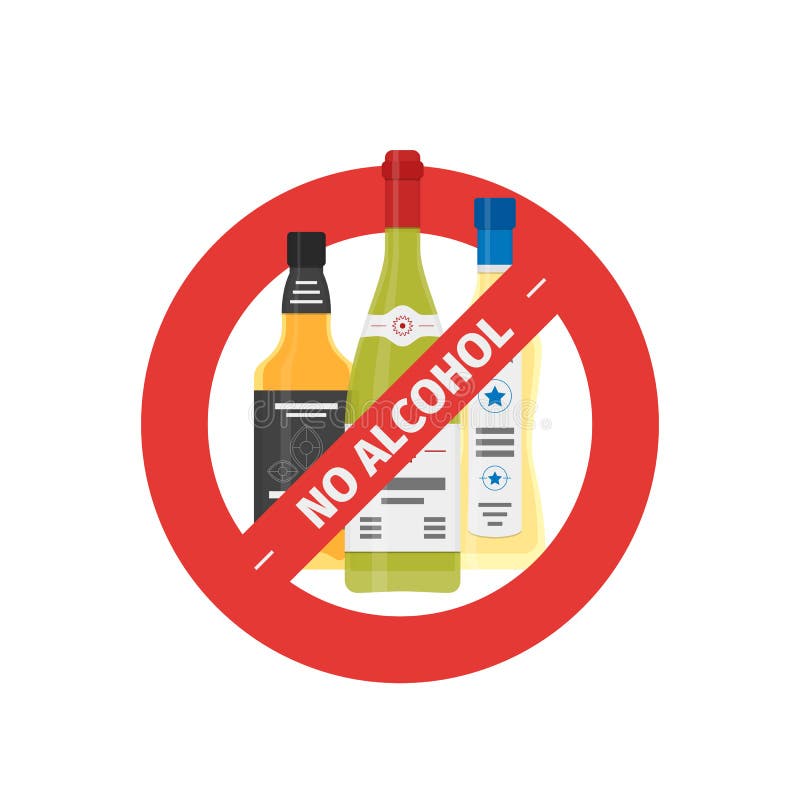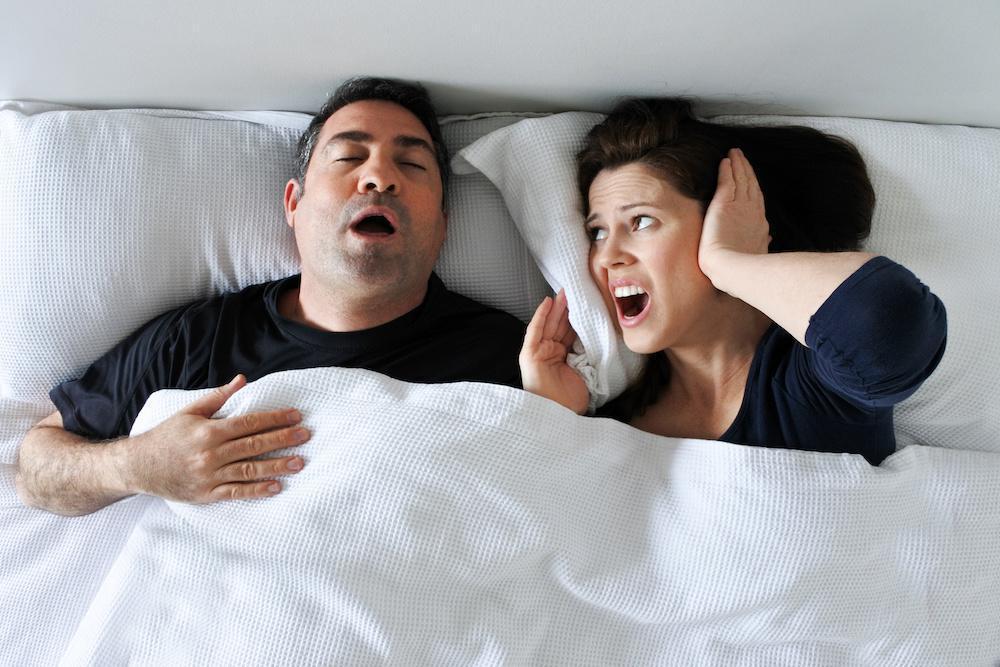7 Semplici soluzioni per russare
Aiuta a mettere a riposo il russare con questi 7 suggerimenti per smettere di russare.
You may be among the 45% of adults who snore at least occasionally or you likely know someone who does. They may be the brunt of jokes (“Uncle Joe snores so loudly he rattles the windows!”), but snoring is serious business.

For one, a snoring person often keeps their partner from a good night’s sleep, which can be stressful. “Snoring can create real problems in a marriage,” says Daniel P. Slaughter, MD, an otolaryngologist and snoring expert at Capital Otolaryngology in Austin, Texas.
Non solo russare è un fastidio, ma il 75% delle persone che russano hanno apnea ostruttiva del sonno (quando la respirazione viene interrotta durante il sonno per brevi periodi), che aumenta il rischio di sviluppare malattie cardiache, dice Slaughter.

Use caution before you self-treat with over-the-counter sprays and pills until you’ve checked with your doctor, says Sudhansu Chokroverty, MD, FRCP, FACP, program director for Clinical Neurophysiology and Sleep Medicine at JFK Medical Center in Edison, N.J. “Many stop-snoring aids are marketed without scientific studies to support their claims,” says Chokroverty, who is also a neuroscience professor at Seton Hall University’s School of Health and Medical Sciences.
Invece, prova queste soluzioni naturali e cambiamenti nello stile di vita, che possono aiutarti a smettere di russare.
1. Cambia la tua posizione di sonno.
Sdraiarsi sulla schiena fa collassare la base della lingua e del palato molle sulla parete posteriore della gola, causando un suono vibrante durante il sonno. Dormire su un fianco può aiutare a prevenire questo.
“A body pillow (a full-length pillow that supports your entire body) provides an easy fix,” Slaughter says. “It enables you to maintain sleeping on your side and can make a dramatic difference.”
Taping tennis balls to the back of your pajamas can also stop you from sleeping on your back, Chokroverty says. “Or you can recline the bed with the head up and extended, which opens up nasal airway passages and may help prevent snoring. This may cause neck pain, however.”
If snoring continues regardless of the sleep position, obstructive sleep apnea may be a cause. “See a doctor in this case,” Chokroverty says.
2. Perdere peso.

Weight loss helps some people but not everyone. “Thin people snore, too,” Slaughter says.
If you’ve gained weight and started snoring and did not snore before you gained weight, weight loss may help. “If you gain weight around your neck, it squeezes the internal diameter of the throat, making it more likely to collapse during sleep, triggering snoring,” Slaughter says.
3. Evitare l’alcol.

Alcohol and sedatives reduce the resting tone of the muscles in the back of your throat, making it more likely you’ll snore. “Drinking alcohol four to five hours before sleeping makes snoring worse,” Chokroverty says. “People who don’t normally snore will snore after drinking alcohol.”
4. Praticare una buona igiene del sonno.
Bad sleep habits (also known as poor sleep “hygiene”) can have an effect similar to that of drinking alcohol, Slaughter says. Working long hours without enough sleep, for example, means when you finally hit the sack you’re overtired. “You sleep hard and deep, and the muscles become floppier, which creates snoring,” Slaughter says.
5. Aprire i passaggi nasali.
If snoring starts in your nose, keeping nasal passages open may help. It allows air to move through slower, Slaughter says. “Imagine a narrow garden hose with water running through. The narrower the hose, the faster the water rushes through.”
I tuoi passaggi nasali funzionano in modo simile. Se il naso è ostruito o ristretto a causa di un freddo o di un altro blocco, è più probabile che l’aria in rapido movimento produca russare.
A hot shower before you go to bed can help open nasal passages, Slaughter says. Keep a bottle of saltwater rinse in the shower. “Rinse your nose out with it while you’re showering to help open up passages,” Slaughter says.
Potresti anche usare una pentola neti per sciacquare i passaggi nasali con una soluzione di acqua salata.
Le strisce nasali possono anche funzionare per sollevare i passaggi nasali e aprirli – se il problema esiste nel naso e non all’interno del palato molle.
6. Cambia i cuscini.
Gli allergeni nella tua camera da letto e nel tuo cuscino possono contribuire a russare. Quando è stata l’ultima volta che hai spolverato il ventilatore a soffitto? Sostituire i cuscini?
Gli acari della polvere si accumulano nei cuscini e possono causare reazioni allergiche che possono portare al russare. Permettere agli animali domestici di dormire sul letto ti fa respirare peli di animali, un altro irritante comune.
“If you feel fine during the day but obstructed at night, these things may be contributing to your snoring,” Slaughter says.
Metti i tuoi cuscini nel ciclo di lanugine d’aria una volta ogni due settimane e sostituiscili ogni sei mesi per ridurre al minimo gli acari della polvere e gli allergeni. E tieni gli animali domestici fuori dalla camera da letto.
Beware before spending money on special pillows designed to prevent snoring, Chokroverty says. “They may work if it props up your head, which fixes nasal issues, but can cause neck pain.”
7. Rimani ben idratato.

Drink plenty of fluids. “Secretions in your nose and soft palate become stickier when you’re dehydrated,” Slaughter says. “This can create more snoring.” According to the Institute of Medicine, healthy women should have about 11 cups of total water (from all drinks and food) a day; men need about 16 cups.
Overall, get enough sleep, sleep on your side, avoid alcohol before bedtime and take a hot shower if nasal passages are clogged, Slaughter says. “These simple practices can make a huge difference in reducing snoring.”







